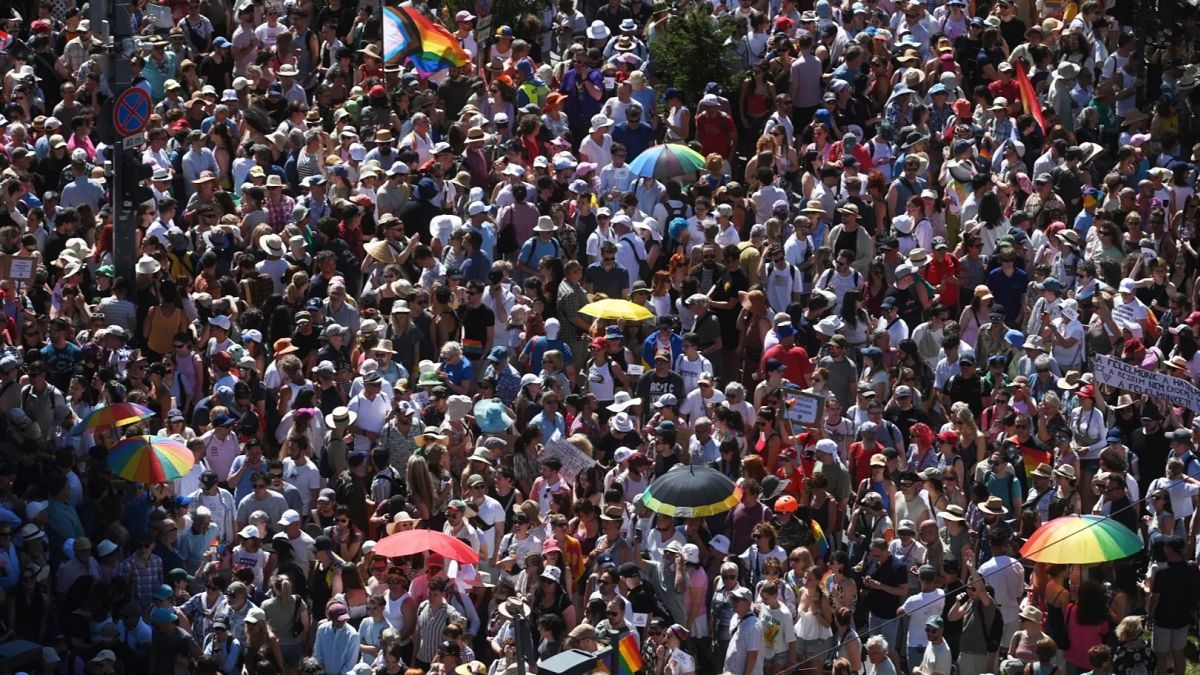

In a rapidly changing world, a spectrum of significant developments is taking shape across the globe. From Hungary to South Africa, these stories reflect the complexities and diverse challenges of contemporary life, each carrying its own implications for society and the environment.
In Hungary, a contentious dialogue is unfolding regarding LGBTQ+ rights. Recently, the Budapest mayor found himself under police scrutiny for his involvement in an LGBTQ+ Pride march. Prime Minister Viktor Orbán and his party have expressed that such celebrations infringe upon children’s rights to moral and spiritual development. This reflects a broader societal debate about the role of public expressions of identity and the balance of freedom and protection in society.
Meanwhile, the European Union’s top court has issued a stern reminder about the treatment of asylum seekers. Italy’s practice of transferring migrants to Albania has come under legal examination, resulting in a decision that underscores the need for genuine safety assurances for all individuals seeking asylum. This ruling challenges the 2023 agreement that allowed for the establishment of detention centers in Albania, prompting a reevaluation of what constitutes a “safe” environment for vulnerable populations.
On a different front, South Africa has embarked on an innovative journey to protect its iconic wildlife. The Rhisotope Project, initiated by the University of the Witwatersrand along with nuclear energy officials and conservationists, has started a wave of protection against illegal poaching by injecting rhinoceros horns with harmless radioactive isotopes. This method not only preserves the lives of these majestic creatures but also adds a complex layer of technology to conservation efforts, marking hope in the fight against illegal wildlife trafficking.
However, not all recent news is heartening. A report introduced by Physicians for Human Rights and the Organization for Justice and Accountability in the Horn of Africa has spotlighted grim realities in Tigray, where systematic atrocities by Ethiopian and Eritrean forces have been documented. In-depth research accounts for the severe sexual violence inflicting irrevocable harm on women and children, an unsettling truth that calls for international attention and action.
In Myanmar, political shifts continue as the junta lifts the long-standing state of emergency initially imposed during the controversial ousting of Aung San Suu Kyi’s civilian government. Preparations for an upcoming election proceed amid widespread criticism from both local opposition groups and international monitors, who dismiss the planned poll as a mere tactic to entrench military rule. This development revives conversations about democratic integrity and the enduring struggle for governance that reflects the people’s will.
These global narratives each carry an undercurrent of resilience and reflection in the face of trials and triumphs. From safeguarding political freedom and assuring humane treatment for all, to innovating in wildlife preservation, these stories evoke a mindful contemplation of the world we continue to collectively shape.
Source: {link}
